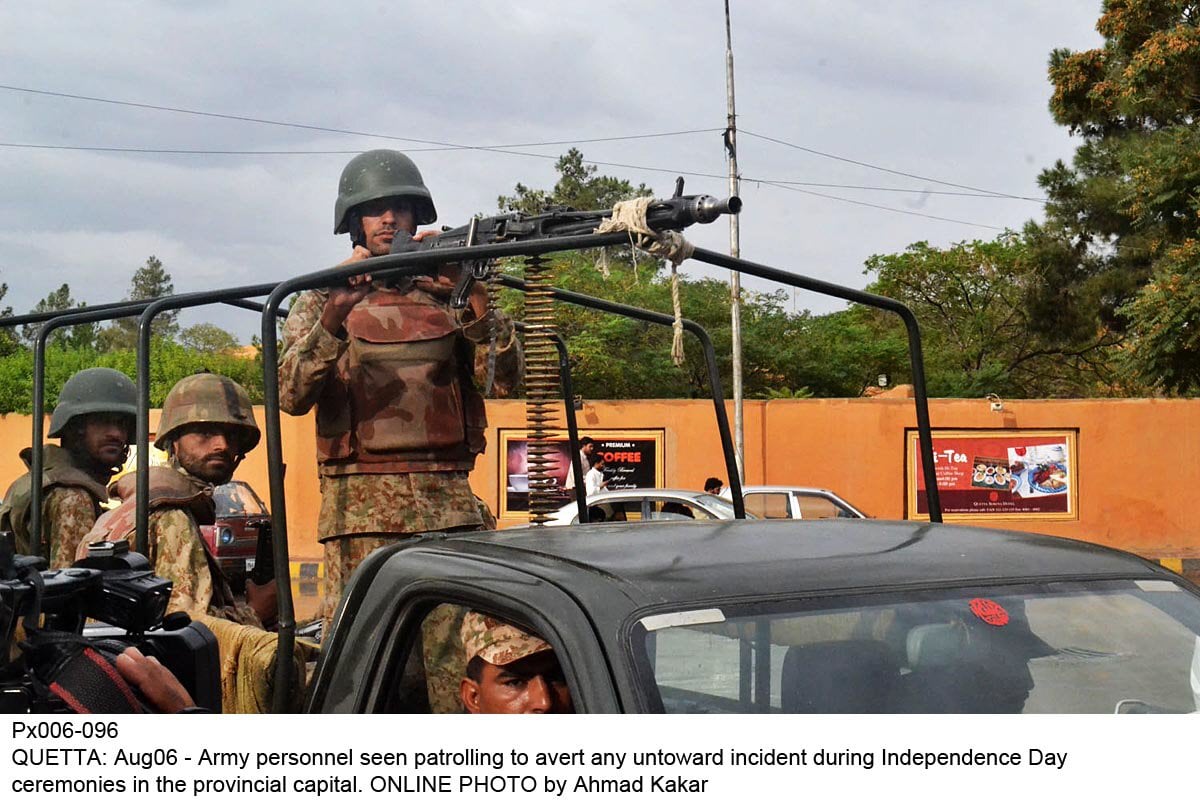
No meeting has lately been held in connection with the NAP and stakeholders are clueless about its status, according to defence analysts.
The NAP was established by the government in January 2015 to launch a crackdown against terrorists in the country with particular focus on the north-western region. It was to be a major coordinated state-led retaliation following the deadly attack on the Army Public School in Peshawar on December 16, 2014.
NAP progress
When adopted two years ago, the plan received unprecedented support from across the political spectrum, inclusive of the federal and provincial governments. However, this does not seem to be case at the moment.
Air Marshal (retd) Shahid Lateef told The Express Tribune that the NAP ‘has died’, becoming ‘part of the history’ because of a lack of political interest.
As is the general trend, he said, a lot of enthusiasm is expressed as the crisis emerges, but with the passage of time the issue is forgotten. He said the same had happened with the NAP.
Bilawal reiterates need to ‘implement NAP’
He said the military establishment did a good job by implementing NAP’s agenda like carrying out an operation in Karachi and setting up summary military courts. But, he added, there was inaction on the part of federal and provincial governments as regards implementing the plan.
“It is inappropriate to say that a change in command in the military has affected the NAP’s progress. It was slow even when General (retd) Raheel Sharif was the army chief,” said Lateef.
“The government is busy dealing with other issues such as the Panama Papers case and the JIT. It seems the government has no concern whatsoever with the issues like the NAP implementation or the worsening Gulf situation,” he said.
K-P apex committee pledges to expedite NAP implementation
The civilian government, he said, was responsible for developing the national narrative to counter terrorism and registering religious seminaries. “However, unregistered seminaries are functioning even in the federal capital territory,” he said.
Brigadier (retd) Said Nazeer Mohmand said that Pakistan was facing internal political division and the hands of security forces were already full.
Highlighting ‘new dangers’ on the horizon, he said that there were things which “are beyond one’s control”.
Under NAP: Sindh closes 2,311 seminaries in geo mapping exercise
Currently, he said, implementing the NAP was not a priority. He added political parties had their own issues in connection with the NAP’s implementation. He said PPP-P did not want its full implementation in Sindh and the PML-N was not granting sufficient powers to the Rangers in Punjab for curbing terrorism.
Pakistan, Mohmand said, could not afford to lower its guard. “The country must continue with its contingency plan,” he said.
According to him, the main focus of political parties is now on the upcoming general election.

















COMMENTS
Comments are moderated and generally will be posted if they are on-topic and not abusive.
For more information, please see our Comments FAQ